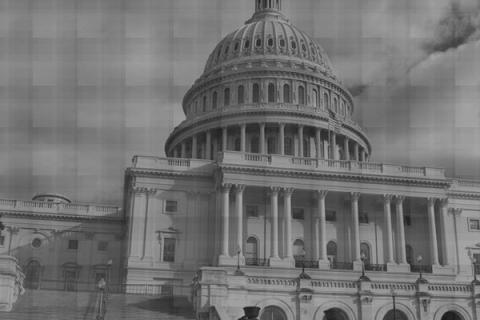Whatever the outcome of the November elections, 2010 is shaping up to be an historic year for the nation’s Independent and third party movements, as well as for voters who desire viable alternatives to the dysfunctional two-party government. Widespread dissatisfaction with both the Democratic and Republican parties has led not only to a deep anti-incumbent mood among the electorate, it has also inspired record numbers of third party and Independent hopefuls to throw their hats into the political ring.
According to Richard Winger at Ballot Access News, there are no less than 611 minor party candidates and at least 304 Independent candidates for state legislature in the 45 states holding partisan legislative elections this year. Winger notes that this is an “unusually high” number of Independent candidates for state legislature, far surpassing the previous decade-high of 188 in 2002.
There are also record numbers of strong third party and Independent candidates for statewide offices as well. This past summer, Eric Ostermeier at Smart Politics published the results of an analysis examining over 1,800 gubernatorial elections since 1900. The study found that this year’s crop of third party and Independent gubernatorial candidates “will rival those of 1994 for the strongest showing over the last 75 years since the Great Depression.” Ostermeier concluded:
“With Democrats on the hot-seat now and the distaste the electorate felt for the GOP just two years old, all signs point toward a big day for third parties in 2010.”
With a bit of luck and a lot of effort in the final stretch of the campaign season, many of this year’s third party and Independent candidates may end up with surprisingly strong showings in the November polls, potentially affecting the outcome of elections. Others may even prove victorious, achieving striking upsets against their Democratic and Republican rivals. There are at least five states with third party or Independent gubernatorial candidates who are fairly well-positioned and running strong campaigns as we head into the final month of the campaign season. The cluster of strong Independent gubernatorial candidates in the Northeast is one of the most interesting political developments of the year.
Maine’s three independent candidates for the state’s top office are garnering a combined 20% in recent polls, keeping their Democratic and Republican rivals to under 39% support. In Rhode Island, Independent Lincoln Chafee continues to lead his Democratic and Republican rivals. In Massachusetts, Independent Tim Cahill is pulling between 11% and 16% support and is determined to remain in the race despite the recent resignation of a high level staffer; at the same time, the state’s Green-Rainbow party candidate for governor, Jill Stein, has just qualified for matching public funds in the race.
In Minnesota, Independence Party gubernatorial candidate Tom Horner has been gaining ground against his Democratic and Republican rivals in recent weeks, and may be able to capitalize on that momentum in upcoming debates, as Jesse Ventura did in his successful bid for the office in 1998. Meanwhile, Constitution Party candidate for governor of Colorado, Tom Tancredo, has successfully displaced Republican Dan Maes as the strongest contender against Democrat John Hickenlooper, relegating the embattled GOP hopeful to third place in the race.
The Green and Libertarian parties are also poised to make relatively strong showings in some states and may even come out on top in any number of local or state-legislative races across the country. According to local news reports, the Green slate of candidates in Illinois and the Libertarian slate in Georgia may garner anywhere from 5% to 20% of the vote, and build upon momentum from previous elections while capitalizing on discontent with the Democratic and Republican parties.
Given the historic number of third party and Independent candidates for office this year, it is simply untrue to assert that our only choice in the voting booth is that between the Democrats and Republicans. How much longer are you willing to tolerate a system which admittedly strives only to provide a choice between the lesser of two evils?

